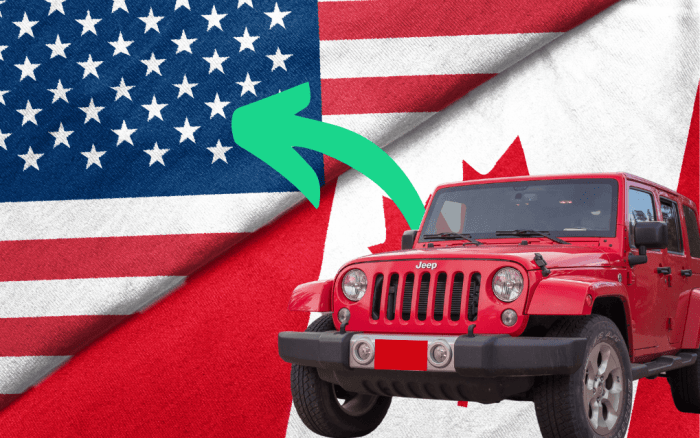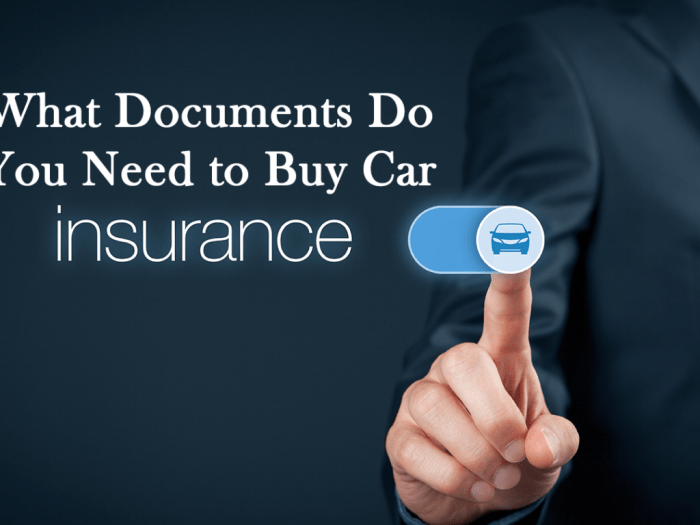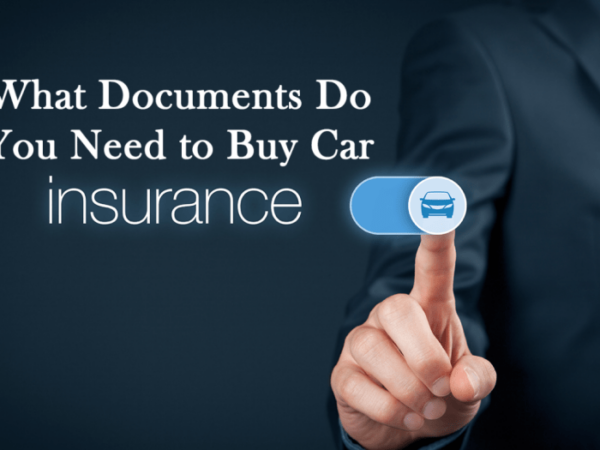
Can I insure a Canadian car in the US? This question arises for many Canadians who plan to drive their vehicles across the border. While it’s possible to insure a Canadian car in the US, it’s not always straightforward. Insurance regulations differ between Canada and the US, and several factors can influence your ability to secure coverage.
This guide explores the intricacies of insuring a Canadian car in the US, covering everything from legal requirements and available insurance options to tips for navigating the process.
Understanding the Basics

Insuring a Canadian car in the United States presents unique challenges due to differences in insurance regulations and requirements between the two countries. While it’s possible to obtain US insurance for your Canadian vehicle, navigating the process can be complex. Understanding the key differences and considerations is crucial for ensuring you have adequate coverage and avoid potential complications.
Differences in Insurance Regulations
Canadian and US insurance regulations differ significantly, impacting coverage options, requirements, and costs. Here’s a breakdown of some key differences:
- Coverage Types: While both countries offer basic liability coverage, the types and levels of optional coverage may vary. For instance, US insurance policies may include additional coverage options, such as uninsured/underinsured motorist coverage (UM/UIM), which may not be standard in Canadian policies. Conversely, Canadian policies may include coverage for accidents outside of North America, which may not be readily available in US policies.
- Minimum Coverage Requirements: Each state in the US has its own minimum insurance requirements, often referred to as “financial responsibility laws,” which specify the minimum liability coverage you must carry. These requirements can vary significantly from state to state, so it’s essential to research the specific requirements of the state where you plan to drive. In Canada, minimum coverage requirements are set at the provincial level, and they generally differ from US requirements.
- Insurance Rates: Insurance rates are influenced by various factors, including the type of vehicle, driving history, location, and coverage levels. However, insurance rates can differ considerably between Canada and the US. Several factors contribute to this difference, including differences in risk profiles, claim frequencies, and legal environments. It’s essential to compare quotes from multiple US insurance providers to find the most competitive rates.
Challenges Faced by Canadian Car Owners
Canadian car owners seeking US insurance may encounter several challenges, including:
- Proof of Residency: US insurance providers typically require proof of residency in the US before issuing a policy. Canadian car owners may face difficulty meeting this requirement, especially if they are not permanent residents or citizens. This can be particularly challenging for short-term visitors or those with temporary work assignments.
- Vehicle Registration: US insurance providers may require a vehicle to be registered in the US before issuing a policy. This can be a significant hurdle for Canadian car owners, as they may need to obtain a US vehicle registration, which involves various steps and requirements.
- Driving History: US insurance providers may require a US driving history to assess risk and determine insurance rates. This can be a challenge for Canadian drivers, as their driving history is not readily available in US databases. They may need to provide documentation from Canadian insurance providers or obtain a US driving history report through a third-party service.
Key Considerations for Insuring a Canadian Car in the US
Several key considerations are essential when insuring a Canadian car in the US:
- Coverage Types: Carefully evaluate your coverage needs based on your intended use of the vehicle in the US. Consider factors like the duration of your stay, the distance you plan to drive, and the type of driving you will be doing. If you plan to drive extensively in the US, you may need to purchase additional coverage options beyond the minimum requirements, such as collision and comprehensive coverage.
- Potential Limitations: US insurance policies may have limitations or exclusions that apply to Canadian vehicles. For example, some policies may exclude coverage for certain types of accidents or specific driving situations. It’s essential to review the policy terms and conditions carefully to understand any potential limitations.
- Insurance Provider Selection: Research and compare quotes from multiple US insurance providers to find the best coverage and rates for your specific needs. Consider factors like customer service, claims handling processes, and the provider’s reputation. Look for providers that specialize in insuring non-US resident vehicles or those with experience in handling cross-border insurance claims.
Factors Affecting Insurability

Getting insurance for a Canadian car in the US involves various factors that can influence your ability to secure coverage and the associated costs. Understanding these factors is crucial for a smooth transition and a fair insurance rate.
Vehicle Type
The type of vehicle significantly impacts its insurability. Some vehicle types are considered higher risk due to their performance, size, or theft susceptibility.
- Sports cars are often associated with higher speeds and riskier driving behavior, leading to higher insurance premiums.
- Luxury vehicles are often targets for theft, resulting in higher insurance costs due to their higher value.
- Trucks and SUVs are typically larger and heavier, which can increase the severity of accidents and therefore insurance costs.
Vehicle Age
The age of a car can influence its insurability in the US.
- Older vehicles may have outdated safety features and are more prone to mechanical issues, leading to higher insurance rates.
- Newer vehicles generally have better safety features and are less likely to experience mechanical problems, resulting in lower insurance premiums.
Vehicle Modifications, Can i insure a canadian car in the us
Modifications to a vehicle can impact its insurability.
- Performance modifications, such as engine upgrades or exhaust systems, can increase the vehicle’s power and speed, potentially leading to higher insurance premiums.
- Cosmetic modifications, such as body kits or custom paint jobs, may not significantly impact insurance rates unless they affect the vehicle’s value or safety.
Insurance Rates Comparison
Insurance rates for Canadian cars versus US cars in the US market can vary significantly.
- Canadian cars might face higher insurance rates due to potential differences in safety standards and regulations between Canada and the US.
- US cars are typically more readily available for parts and repairs, which can influence insurance rates.
Challenging Scenarios
Insuring a Canadian car in the US can be more challenging in certain situations.
- Importing a car older than 25 years: US customs regulations might impose restrictions on importing older vehicles, potentially affecting their insurability.
- Vehicles with non-standard parts or modifications: US insurance companies may have difficulty obtaining parts or finding qualified mechanics to repair vehicles with non-standard parts or modifications, leading to higher insurance costs or refusal of coverage.
Available Insurance Options: Can I Insure A Canadian Car In The Us
When insuring a Canadian car in the US, you have various insurance policy options to consider. Understanding these options is crucial to ensuring you have the right coverage to protect yourself and your vehicle.
Types of Insurance Policies
The most common types of insurance policies available for Canadian cars in the US include:
- Liability Insurance: This is the minimum required insurance in most states. It covers damages or injuries caused to other people or their property in an accident, but not your own vehicle.
- Collision Coverage: This covers damages to your vehicle in an accident, regardless of who is at fault. It pays for repairs or replacement, minus your deductible.
- Comprehensive Coverage: This covers damages to your vehicle from events other than accidents, such as theft, vandalism, natural disasters, and animal collisions. It also pays for repairs or replacement, minus your deductible.
Insurance Providers and Coverage Options
Here is a table comparing different insurance providers and their coverage options for Canadian cars in the US:
| Insurance Provider | Liability Coverage | Collision Coverage | Comprehensive Coverage | Other Coverage Options |
|---|---|---|---|---|
| Provider A | $100,000/$300,000 | Available | Available | Roadside assistance, rental car coverage |
| Provider B | $50,000/$100,000 | Available | Available | Gap insurance, uninsured motorist coverage |
| Provider C | $25,000/$50,000 | Available | Available | Towing and labor coverage, medical payments coverage |
Benefits and Drawbacks of Insurance Options
- Liability Insurance: This is the most basic form of insurance, offering minimal protection. However, it is the most affordable option and mandatory in most states. The drawback is that it does not cover damages to your own vehicle.
- Collision Coverage: This provides comprehensive protection for your vehicle in an accident. The benefit is that it covers repairs or replacement, but the drawback is that it is more expensive than liability insurance.
- Comprehensive Coverage: This offers protection against a wide range of events that could damage your vehicle. The benefit is that it provides peace of mind knowing your vehicle is protected, but the drawback is that it is the most expensive coverage option.
Legal and Regulatory Considerations

Driving a Canadian car in the US requires navigating a specific set of legal and regulatory requirements. These rules ensure safe and responsible driving while respecting international agreements. Understanding these regulations is crucial for avoiding penalties and ensuring a smooth driving experience.
Registration and Licensing Requirements
Driving a Canadian car in the US requires compliance with specific registration and licensing regulations. This section Artikels the necessary steps and documents to ensure legal driving.
- Temporary Importation Permit: A temporary importation permit allows you to drive a Canadian car in the US for a limited period. This permit, typically valid for up to one year, requires documentation from the US Customs and Border Protection (CBP).
- Canadian Registration: Your Canadian car must have valid registration with the relevant Canadian province or territory. This document proves ownership and legal operation within Canada.
- Canadian Driver’s License: A valid Canadian driver’s license is required to operate a vehicle in the US. This license serves as proof of your driving privileges and qualifications.
- US State Registration: Depending on the duration of your stay and US state regulations, you may need to register your Canadian car in the US. This typically involves obtaining a US license plate and registering the vehicle with the relevant state’s Department of Motor Vehicles (DMV).
Consequences of Driving Without Proper Insurance
Driving a Canadian car in the US without proper insurance can lead to severe consequences. This section Artikels the potential risks and penalties associated with non-compliance.
- Financial Penalties: Driving without insurance in the US can result in significant fines and penalties. These fines can vary depending on the state and the severity of the violation.
- License Suspension: In some states, driving without insurance can lead to the suspension of your Canadian driver’s license. This can significantly impact your ability to drive in both Canada and the US.
- Vehicle Impoundment: Authorities may impound your Canadian car if it is determined to be uninsured. This can lead to additional storage fees and complications in retrieving your vehicle.
- Legal Liability: In the event of an accident, driving without insurance can leave you financially responsible for damages and injuries, even if you are not at fault. This can result in significant financial burden and legal complications.
Navigating Legal Complexities
Ensuring compliance with US regulations when driving a Canadian car requires careful planning and understanding of the specific requirements. This section provides guidance on navigating legal complexities and avoiding potential issues.
- Research State Laws: Before driving your Canadian car in the US, research the specific registration, licensing, and insurance requirements of the state you plan to visit.
- Contact US Authorities: If you are unsure about any legal requirements, contact the US Customs and Border Protection (CBP) or the relevant state’s Department of Motor Vehicles (DMV) for clarification.
- Obtain Proper Insurance: Ensure you have adequate insurance coverage that meets US requirements. This may involve obtaining temporary US insurance or ensuring your Canadian insurance policy provides sufficient coverage in the US.
- Maintain Documentation: Carry all necessary documentation, including your Canadian driver’s license, car registration, temporary importation permit, and insurance policy, while driving in the US.
Tips for Canadian Car Owners
Navigating the complexities of US car insurance can be daunting, but with proper preparation and understanding, you can secure coverage that meets your needs. This section provides valuable tips to help Canadian car owners successfully navigate the process.
Research and Compare Insurance Providers
Finding the right insurance provider is crucial. Start by researching reputable US insurance companies specializing in coverage for non-resident Canadians. Consider factors like coverage options, pricing, customer service, and online tools. Online comparison websites can help you quickly compare quotes from multiple providers.
Negotiate Rates
Don’t hesitate to negotiate rates. Insurance companies often offer discounts for factors like good driving history, safety features in your vehicle, and bundling multiple insurance policies.
- Ask about discounts for being a Canadian resident.
- Consider taking defensive driving courses to qualify for additional discounts.
- Be prepared to provide documentation to support your eligibility for discounts.
Gather Required Documents and Information
Before applying for insurance, ensure you have all necessary documentation readily available. This includes:
- Valid Canadian driver’s license.
- Vehicle registration and proof of ownership.
- Proof of Canadian residency (e.g., passport, utility bill).
- Information about your driving history (e.g., accident history, traffic violations).
- Details about your vehicle (e.g., make, model, year, VIN).
Communicate Effectively with Insurance Companies
Clear communication is key to obtaining the right coverage. Be upfront about your specific needs, potential challenges, and any questions you have.
- Explain your situation as a Canadian car owner seeking temporary insurance.
- Be transparent about your driving history and any potential risks.
- Clearly communicate your coverage requirements, including liability, collision, comprehensive, and medical payments.
Last Word
Insuring a Canadian car in the US requires careful planning and research. Understanding the differences in insurance regulations, exploring available options, and adhering to legal requirements are crucial for a smooth transition. By carefully considering the factors Artikeld in this guide, Canadian car owners can navigate the process confidently and secure the necessary coverage for their vehicles.
FAQs
What documents do I need to insure my Canadian car in the US?
You’ll generally need your Canadian driver’s license, vehicle registration, proof of insurance, and possibly a passport or visa.
Is it cheaper to insure a Canadian car in the US or Canada?
Insurance rates can vary depending on factors like your driving history, vehicle type, and location. It’s best to get quotes from multiple insurers in both countries to compare prices.
Can I use my Canadian car insurance in the US?
While your Canadian insurance may provide some limited coverage in the US, it’s usually not sufficient for long-term use. You’ll need to obtain US-based insurance for extended stays or regular driving.





